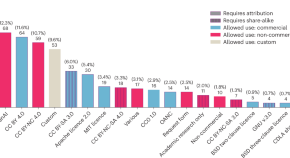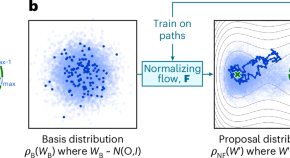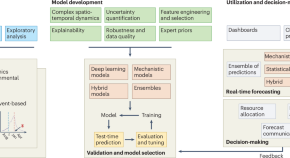Nature Machine Intelligence (original) (raw)

October issue
Raghavan, G., Tharwat, B., Hari, S.N. et al. Engineering flexible machine learning systems by traversing functionally invariant paths.
Featured
Distinguishing between real and fabricated facts has long been a societal challenge. As the Internet becomes increasingly littered with AI-generated content, the need for curation and safeguarding of high-quality data and information is more crucial than ever.
Editorial21 Oct 2024
A large-scale audit of dataset licensing and attribution in AI
The Data Provenance Initiative audits over 1,800 text artificial intelligence (AI) datasets, analysing trends, permissions of use and global representation. It exposes frequent errors on several major data hosting sites and offers tools for transparent and informed use of AI training data.
- Shayne Longpre
- Robert Mahari
- Sara Hooker
ArticleOpen Access30 Aug 2024 - ArticleOpen Access27 Sept 2024
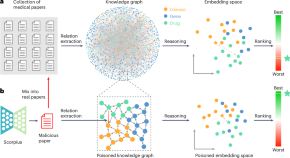
Poisoning medical knowledge using large language models
With increasing reliance on public data sources, researchers are concerned whether low-quality or even adversarial data could have detrimental effects on medical models. Yang et al. developed Scorpius, a malicious text generator, to investigate whether large language models can mislead medical knowledge graphs. They show that a single generated paper abstract can mislead a medical reasoning system that has read millions of papers.
- Junwei Yang
- Hanwen Xu
- Sheng Wang
Article20 Sept 2024
Announcements
The Nobel Prize in Physics 2024 has been awarded to John Hopfield and Geoffrey Hinton “for foundational discoveries and inventions that enable machine learning with artificial neural networks”. In recognition of this award, Nature Portfolio presents a collection of research, review and opinion articles that celebrates the direct contributions by the awardees and the advances they have inspired.
Latest Research articles
Efficient rare event sampling with unsupervised normalizing flows
Sampling rare events is key to various fields of science, but current methods are inefficient. Asghar and colleagues propose a rare event sampler based on normalizing flow neural networks that requires no prior data or collective variables, works at and out of equilibrium and keeps efficiency constant as events become rarer.
- Solomon Asghar
- Qing-Xiang Pei
- Ran Ni
ArticleOpen Access19 Nov 2024 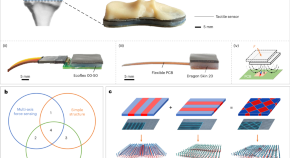
A soft skin with self-decoupled three-axis force-sensing taxels
Electronic skin with decoupled force feedback is essential in robotics. Yan et al. develop a soft magnetic skin capable of self-decoupling three-axis forces per taxel, reducing calibration complexity from quadratic or cubic scales to a linear scale.
- Youcan Yan
- Ahmed Zermane
- Abderrahmane Kheddar
Article19 Nov 2024 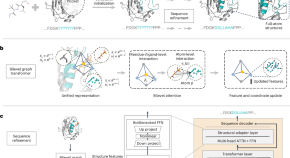
Efficient generation of protein pockets with PocketGen
A generative model that leverages a graph transformer and protein language model to generate residue sequences and full-atom structures of protein pockets is introduced, which outperforms state-of-the-art approaches.
- Zaixi Zhang
- Wan Xiang Shen
- Marinka Zitnik
ArticleOpen Access15 Nov 2024 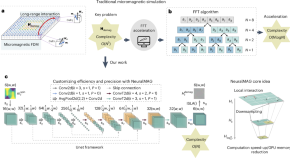
Fast and generalizable micromagnetic simulation with deep neural nets
Many physical systems involve long-range interactions, which present a considerable obstacle to large-scale simulations. Cai, Li and Wang introduce NeuralMAG, a deep learning approach to reduce complexity and accelerate micromagnetic simulations.
- Yunqi Cai
- Jiangnan Li
- Dong Wang
Article14 Nov 2024 - ArticleOpen Access08 Nov 2024
Latest Reviews & Analysis
Machine learning for data-centric epidemic forecasting
Forecasting epidemic progression is a complex task influenced by various factors, including human behaviour, pathogen dynamics and environmental conditions. Rodríguez, Kamarthi and colleagues provide a review of machine learning methods for epidemic forecasting from a data-centric computational perspective.
A step forward in tracing and documenting dataset provenance
Training data are crucial for advancements in artificial intelligence, but many questions remain regarding the provenance of training datasets, license enforcement and creator consent. Mahari et al. provide a set of tools for tracing, documenting and sharing AI training data and highlight the importance for developers to engage with metadata of datasets.
